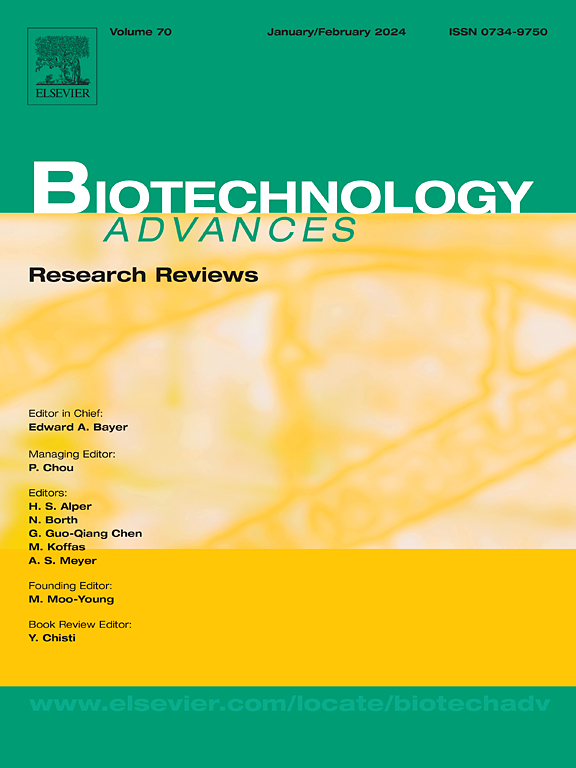海洋杆菌的代谢多样性及其生物技术潜力。
IF 12.5
1区 工程技术
Q1 BIOTECHNOLOGY & APPLIED MICROBIOLOGY
引用次数: 0
摘要
属于海洋杆菌属的细菌是革兰氏阴性,耐盐或嗜盐微生物。它们广泛存在于各种海洋和咸水环境中。这些细菌在全球海洋物质和能量的生物地球化学循环中起着至关重要的作用。随着它们与其他共存微生物的频繁相互作用,海洋杆菌已经发展出多种代谢能力,如碳氢化合物降解、生物反硝化、金属(样物质)的同化以及多种生物活性化合物的合成。由于对某些恶劣环境,特别是高盐度环境的良好适应性,以及显著的代谢通用性,该属植物在废水处理、生物修复和生物生产方面显示出巨大的潜力,因此引起了学术界和工业界越来越多的研究兴趣。海洋杆菌基因组测序数量的不断增加和基因可操控性的不断进步,为深化对其生态作用的认识和推动相关生物技术应用的发展奠定了坚实的基础。然而,实际应用很少,目前对这些代谢过程的遗传、生化和结构基础的了解仍然相当有限。随着代谢多功能性基本机制的进一步阐明,海洋杆菌属的应用研究有望在未来得到极大的推动。本文章由计算机程序翻译,如有差异,请以英文原文为准。
Metabolic versatility of Marinobacter and its biotechnological potential
Bacteria belonging to the genus Marinobacter are Gram-negative, halotolerant or halophilic microorganisms. They are widely found in diverse marine and saline environments. These bacteria play crucial roles in the biogeochemical cycling of substances and energy in the global ocean. Along with their frequent interactions with other coexisting microorganisms, Marinobacter species have developed versatile metabolic capabilities, such as hydrocarbon degradation, biological denitrification, assimilation of metal(loid)s, and the synthesis of diverse bioactive compounds. Due to the outstanding adaptability to certain harsh environments, especially high salinity, and remarkable metabolic versatility, this genus has exhibited great potential in wastewater treatment, bioremediation, and bioproduction, and thus attracted increasing research interest from both academia and industry. The increasing number of sequenced Marinobacter genomes and the advancement of genetic manipulability have set a solid foundation for deepening the understanding of their ecological roles and driving the development of relevant biotechnological applications. However, practical applications are rare, and the current understanding on the genetic, biochemical, and structural bases of these metabolic processes remains still quite limited. With the further elucidation of the fundamental mechanisms of metabolic versatility, the applied research on the genus Marinobacter is expected to be considerably promoted in the future.
求助全文
通过发布文献求助,成功后即可免费获取论文全文。
去求助
来源期刊

Biotechnology advances
工程技术-生物工程与应用微生物
CiteScore
25.50
自引率
2.50%
发文量
167
审稿时长
37 days
期刊介绍:
Biotechnology Advances is a comprehensive review journal that covers all aspects of the multidisciplinary field of biotechnology. The journal focuses on biotechnology principles and their applications in various industries, agriculture, medicine, environmental concerns, and regulatory issues. It publishes authoritative articles that highlight current developments and future trends in the field of biotechnology. The journal invites submissions of manuscripts that are relevant and appropriate. It targets a wide audience, including scientists, engineers, students, instructors, researchers, practitioners, managers, governments, and other stakeholders in the field. Additionally, special issues are published based on selected presentations from recent relevant conferences in collaboration with the organizations hosting those conferences.
 求助内容:
求助内容: 应助结果提醒方式:
应助结果提醒方式:


